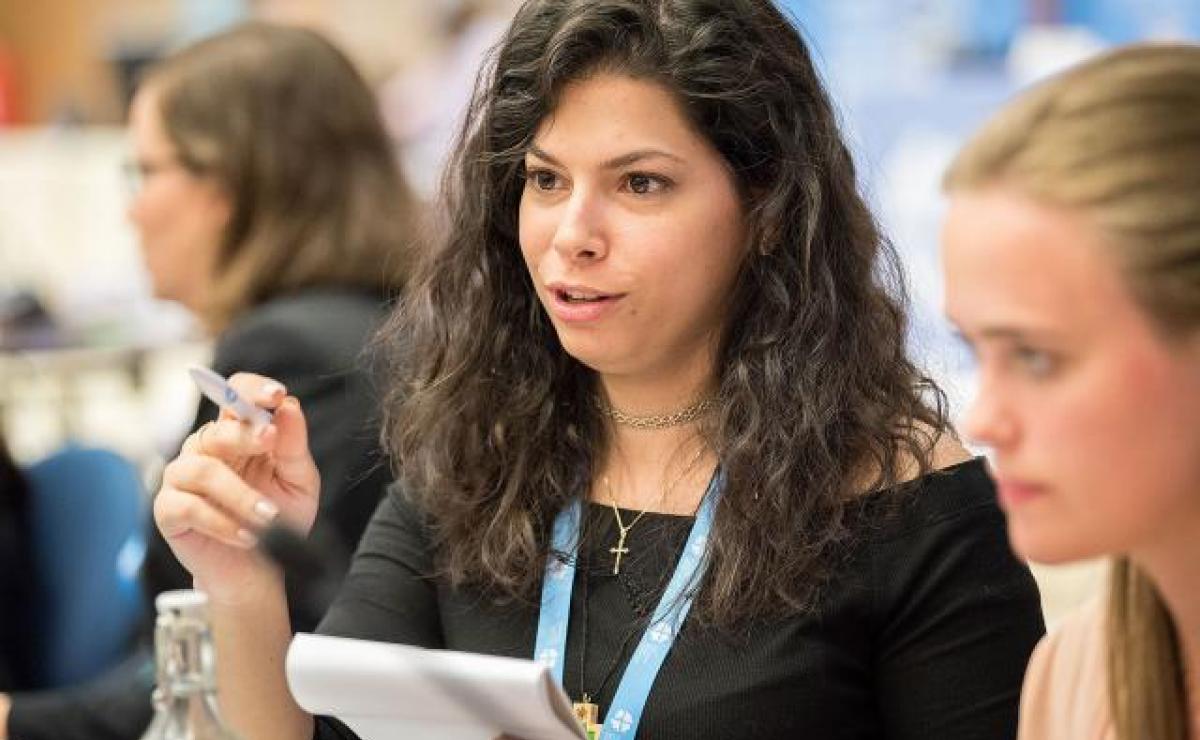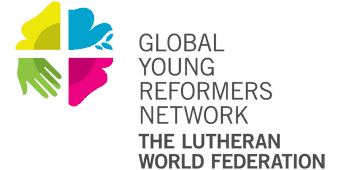Witnessing through dialogue, education and women’s empowerment in the Holy Land

Voices from the Communion: Palestinian LWF Council member Sally Azar
(LWI) - Please tell us something about yourself, and your church?
I was born in Jerusalem, I’m 22 years old and have recently finished studying for my bachelor’s in theology at the Near East School of Theology. I will continue further studies doing my master’s studies in Germany. In the Evangelical Lutheran Church in Jordan and the Holy Land we have seven churches -- one in Amman, Jordan; at Bethany beyond the River Jordan; four in the West Bank and one in Jerusalem.
How is the mission of the ELCJHL defined by its context?
The occupation is very much our biggest issue along with the current Israeli-Palestinian conflict situation. Everybody who lives in the West Bank needs a document to come to Jerusalem. When we want to hold conferences together it can be hard to get permission for the congregation members to come or to enter. And sometimes the border is closed, and you can’t enter so freely. Usually, people say it is easier for holders of Jerusalem identity cards, because they can come and go. But living in Jerusalem in the current situation can be a big issue. The way we live is difficult -- Palestinians, Arabs, Muslims, Israelis and Jews -- all living together as we all try to find our ways to adjust together.
How do you see the role of your church in this situation?
We are trying to have dialogue with people and we are talking with lots of churches including the Middle East Council of Churches and the World Council of Churches on discussions around peaceful dialogue. We are also trying to have interfaith dialogue with Jews and Muslims and to help teach our congregations about this. Also, in our schools, there are programs for Israeli and Palestinian students to come together. I cannot see any results from this yet, but we are waiting for it to come to fruition.
Tell us more about your schools and the role they play in empowering young Palestinians facing these daily challenges?
We have four kindergartens through 12th grade schools which try to provide quality education for Christian and Muslim students from all backgrounds. The church helps poorer families who can’t afford to pay the fees by finding support from other organizations. Our schools offer German language teaching, alongside English and Arabic, and we encourage our pupils to form as broad a vision as possible by connecting them with students in other countries through regular exchange programs. We also run three summer camps for children from all the different churches, offering sports activities as well as religious education and organizing excursions to Jericho or other places where they learn about the biblical stories.
As a young woman, how do you see youth empowerment, gender justice and women's participation in your church?
The church accepted the LWF Gender Justice Policy more than two years ago and we see a move toward gender justice in applying the quota of 40 percent women and 20 percent youth representation. Regarding youth, we are doing all the basic things necessary to get young people to come to church and activities like camps. Involving the youth is a big struggle for the church. They are not coming to church, but this is a problem everywhere in the world. My friends are more active in the church and this helps. I think slowly we will start getting somewhere with the youth.
We also need to work hard on women’s participation and the women’s desk is doing a lot. We are struggling with the empowerment of women in our society due to attitudes in our culture. Having women in leadership is still a struggle. Some people say that “because I am a woman, I can’t do this or the other.” In our church, there are also not many women studying theology but we are trying to get more.
During the LWF Council meeting, you approved the new LWF Strategy. Which parts of the strategy will be especially relevant or interesting for your church?
The commitment to the empowerment of youth and women, I found this really important. That is because these are very important issues in our church in the work for just relationships between men and women, and also in ensuring meaningful and full participation of youth. Another is around the values the church should have, and how we should cooperate. Our church has lots of partnerships and members, so it is important for me how the church develops and builds stronger relationships with those involved.
The Evangelical Lutheran Church in Jordan and the Holy Land has 3,000 members. It joined the LWF in 1974.
The Lutheran World Federation is a global body that shares the work and love of Christ in the world. In this series, we profile church leaders and staff as they discuss topical issues and set out ideas for building peace and justice in the world, ensuring the churches and communion grow in witness and strength.
